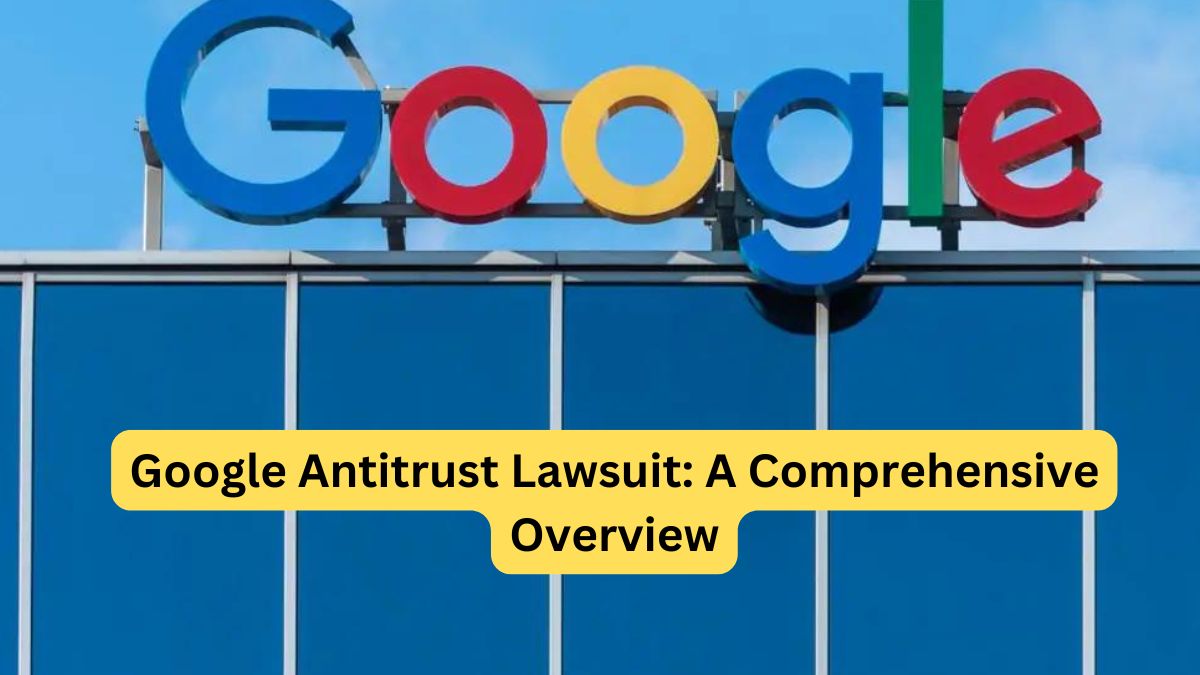The Google antitrust lawsuit represents one of the most significant legal challenges faced by the tech giant in recent years. Filed by the U.S. Department of Justice (DOJ) and a coalition of state attorneys general, the lawsuit accuses Google of engaging in anti-competitive practices that stifle competition and harm consumers. This 1000-word blog post explores the key aspects of the lawsuit, its implications, and its potential impact on the tech industry.
Background of the Lawsuit
The Google antitrust lawsuit was filed on October 20, 2020, marking a major legal battle for the company. The DOJ, along with eleven states, initiated the case, alleging that Google had violated antitrust laws through its dominance in the online search and advertising markets. The central claim is that Google’s actions have created an unfair competitive environment, benefiting itself at the expense of competitors and consumers.
Core Allegations
At the heart of the lawsuit are several key allegations against Google:
- Monopolistic Practices: The DOJ argues that Google has used its dominant position in the search engine market to stifle competition. By making its search engine the default option on many devices and browsers, Google allegedly ensures that its search engine remains the most used, marginalizing competitors.
- Exclusive Contracts: The lawsuit highlights Google’s exclusive agreements with device manufacturers and browsers. For instance, Google’s search engine is often pre-installed on Android devices and set as the default search engine in popular browsers like Google Chrome. These exclusive deals are seen as ways to maintain Google’s monopoly in the search market.
- Search Advertising Dominance: The DOJ contends that Google has unfairly dominated the search advertising market. By controlling both the search engine and the advertising space, Google allegedly creates an uneven playing field for advertisers and competitors.
- Manipulation of Search Results: Another allegation is that Google manipulates search results to favor its own products and services. This practice is said to disadvantage competitors by pushing their offerings down the search results page.
Google’s Defense
In response to the lawsuit, Google has strongly defended its practices. The company argues that its search engine’s popularity is a result of its quality and user preference, not anti-competitive behavior. Google claims that consumers have a wide range of choices and that its exclusive agreements are standard business practices designed to improve user experience.
Google also contends that the competition in the search and advertising markets is fierce. The company points to the rise of alternative search engines and advertising platforms as evidence of a competitive landscape.
Legal and Economic Implications
The outcome of the Google antitrust lawsuit could have far-reaching implications for both the tech industry and consumers. If the court rules against Google, the company might face significant changes in how it operates. Possible remedies include:
- Structural Changes: The court could order Google to divest certain parts of its business or change its practices to promote competition. This might involve breaking up Google’s search and advertising divisions or altering its agreements with device manufacturers.
- Regulatory Oversight: Increased regulatory oversight could be imposed on Google’s business practices. This could lead to more stringent rules governing how Google handles search algorithms, advertising, and exclusive agreements.
- Financial Penalties: Google could face hefty fines if found guilty of anti-competitive behavior. Such penalties would serve as both a punishment and a deterrent for other companies.
- Impact on Innovation: While some argue that breaking up Google might spur innovation by creating more opportunities for competitors, others worry that it could lead to fragmentation and a less cohesive user experience.
Broader Impact on the Tech Industry
The Google antitrust lawsuit is part of a broader scrutiny of major tech companies. Similar investigations and legal actions are being pursued against other giants like Amazon, Apple, and Facebook (now Meta). The outcomes of these cases could reshape the tech landscape, leading to increased regulation and changes in how these companies operate.
For consumers, the lawsuit could mean more choices and potentially better services as competition increases. However, it might also lead to changes in how tech services are delivered and marketed.
Future Developments
The Google antitrust lawsuit is ongoing, with various legal proceedings and negotiations taking place. The outcome will depend on the court’s interpretation of antitrust laws and the evidence presented by both parties. It could take years before a final decision is reached, with potential appeals and further legal challenges.
Conclusion
The Google antitrust lawsuit represents a pivotal moment in the ongoing debate about the power and influence of tech giants. As the case unfolds, it will be crucial to watch how the legal system addresses issues of market dominance and competition. The results could have profound effects on Google, the tech industry, and consumers, shaping the future of digital services and market practices.
Understanding the intricacies of this lawsuit helps in grasping the broader implications for competition and innovation in the tech world. As the legal battle continues, it will be important to stay informed about developments and their potential impact on the industry.
